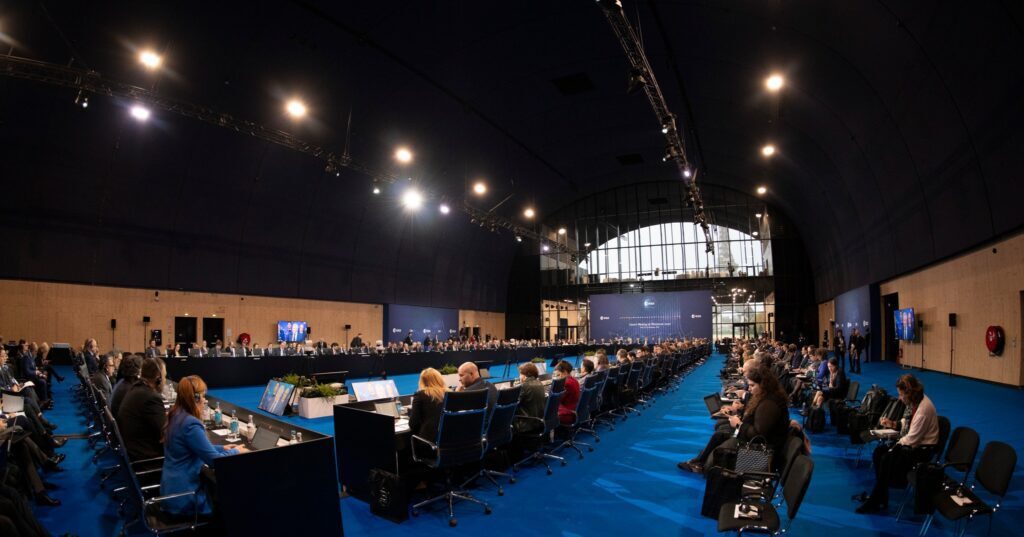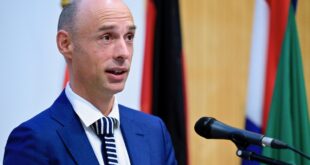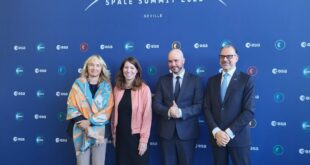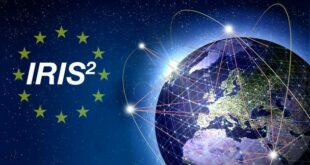
As space becomes ever more integrated into citizens’ daily lives, the impact of space activities on the European economy and society grows ever stronger. At the Council Meeting at Ministerial Level (CM22), European Government Ministers in charge of space activities met to discuss and affirm their commitment to the European Space Agency’s programs for the future. For some of the Countries, here are their commitments.
France
France confirms its unofficial leadership of ESA, highlighting a strong four-point priorities program. Firstly, Minister Bruno Le Maire announced, there is the need of sovereignty of the EU via supporting and sponsoring european-based satellites, launches, constellations and components. Such priority is commonly shared by the Union. Secondly, the necessity to foster competitiveness via effective and well calibrated budgets. Noticeably, France criticised the geo-return policy, hinting that, albeit a good principle, it does not allow to achieve the best product at the best price (the geo-return policy issue returns in the signed agreement between France, Italy and Germany regarding launches). The third strategic point for France is climate, seen as a key part of the EU space strategy to obtain citizen’s support. Lastly, France highlighted the importance to support space exploration beyond Earth, so to remain competitive at international level.
European Commission
At the EU level, EU commissioner for internal market Thierry Breton traced four key priorities the EU would like to see ESA focused on. Firstly, investment in EU-based, fully secure connectivity and constellations, so to allow protected communication for European governments. The minister mentioned the IRIS Programme, the EU Secure Connectivity Program, as an example of flagship programs the EU would like to see developed. Secondly, the investment in the maintenance of Copernicus and Galileo, in particular in the modernisation of Copernicus and the introduction of a new hybrid architecture that should couple the usual EO services traditional with secure services for governments. Third, the boosting of space entrepreneurship, so to transform Europe in a Global hub for NewSpace private enterprises. And fourth, autonomous access to space via Union-based launch services (referring in particular to Ariane-6 and Vega-C).
Germany
Germany echoed France in repeating that the top three prioritises are climate, EU sovereignty and Newspace economical competition. Germany also highlights the importance of maintain space launches available form the European territories, and introduces other priorities such as debris and collaboration with other international partners.
Italy
Italy, at the moment the third contributor to ESA’s budget, reinforced the intention of the country to support ESA’s budget, especially in regards to human and robotic exploration and private-public interaction. The Minister pointed out that, due to the most recent election, the budget reserved to space is still currently under review.
Czech Republic
Czech Republic’s Minister announced that his Country intends to continue pursuing its national space plan and will increase its annual funding to ESA optional programs by 5%, despite the current challenging economic situation. The Minister also added that the Czech Republic had prepared a corresponding package and subscription to participate in all ESA program domains.
The Minister also adds that the Czech Republic plans to increase some programs radically. Speaking on the ongoing ESA astronaut selection program, the Minister expresses his hopes for diversity among the selected corps regarding skillset, gender, and citizenship. They also expect that Central and Eastern Europe will be well represented.
Hungary
The Hungarian Minister also expressed the Country’s advocacy for the peaceful use of outer space and the essential nature of the space industry, especially in terms of economic recovery. As a result, the Minister restated Hungary’s commitment to supporting the programs and efforts of the ESA to strengthen the European Union’s role in global space affairs. Consequently, Hungary committed to maintaining a similar financial contribution to the ESA programs as in 2019. The Minister also gave some essential details regarding the Hungarian to Orbit (HUNOR) program and promised ESA research and experiment slots during the program’s 30-day space research mission.
Norway
The Norwegian Minister noted that ESA’s expertise, technology, and network are essential to Norway’s space industry development. As a result, Norway committed to maintaining its current financial support for the ESA optional programs. The Minister emphasized the importance of space in the current geopolitical realities, which the Norwegian space investment reflects.
The Netherlands
The Netherlands’ Minister disclosed that dutch companies and institutions have embarked on a public and private program worth 150 million Euros for optical communication modules in collaboration with ESA. In addition, The Netherlands have also started preparing a new generation of emission monitoring technology together with ESA. Regarding ESA’s monetary programs, the Dutch Minister noted that the Country continues to monitor the science program. The Netherlands also committed to potentially making financial contributions to ESA’s renovations of the European Space Operations Center (ESOC) and European Space Research and Technology Center (ESTEC).
United Kingdom
United Kingdom’s representative Minister also disclosed that the Director-General had arranged a “strong package of investment” to enable the UK to increase its financial support to the Agency. This was after extolling the numerous benefits of the European space partnership and corporation that the ESA has fostered within the region. The Minister also noted the importance of showing that the UK is not just financing space research during an economic recession but also benefiting from procurement, manufacturing, and launching commercially viable Low Earth Orbit (LEO) satellites.
Denmark
Likewise, the Danish representative disclosed that because no fiscal law for 2023 has yet been proposed in the Danish parliament, the Country’s commitments to the Agency will be based on appropriations under the 2022 fiscal law. The Danish Director-General noted that Denmark would adopt the mandatory activities which the ministerial conference, including the proposed level of resources and associated budget for the French Guiana Spaceport. The representative also expressed Denmark’s intentions to maintain its current level of subscriptions to the optional programs based on the 2023 fiscal appropriations. However, she added that Denmark commits to additional subscriptions if the Danish parliament increases its contribution to the optional programs.
Sweden
The Swedish Minister noted that Sweden would continue to implement significant parts of its space programs through ESA as the corporation is of utmost importance to Sweden. She added that her Country would considerably increase its ESA optional program contribution. The Minister also said that Sweden is finalizing the construction of a new launch pad, with the facility forming an essential contribution to Europe’s independent access to space. In addition, Sweden intends to significantly increase its contribution to ESA’s security and Earth Observation programs.
Slovenia
The Slovenian Minister expressed that Slovenia was eager to increase its role and impact in ESA’s programs as the Country sees the Agency as a success story. As a result, the Country committed to increasing its financial investments and support to ESA until 2030. In addition, the Minister noted Slovenia’s ambition to complete its membership process with the ESA within the next 24 months by adopting its national space strategy.
Bulgaria
The Bulgarian Minister noted that its partnership with ESA will support Bulgaria’s efforts to encourage more Newspace companies to participate in Bulgaria’s space program and increase investments accordingly. As a result, Bulgaria expects to gradually raise its contribution to ESA starting from the next annual contribution to maximize the benefits of working with the Agency.
Cyprus
The Cyprus delegation also acknowledged the Agency’s important work and reaffirmed Cyprus’ strong commitment to work towards the shared vision of accelerating space use. The Minister added that the collaboration with ESA has left a tangible and encouraging result in the Country. As a result, Cyprus committed to increasing its subscription level in 2022 and a further increase in 2023.





